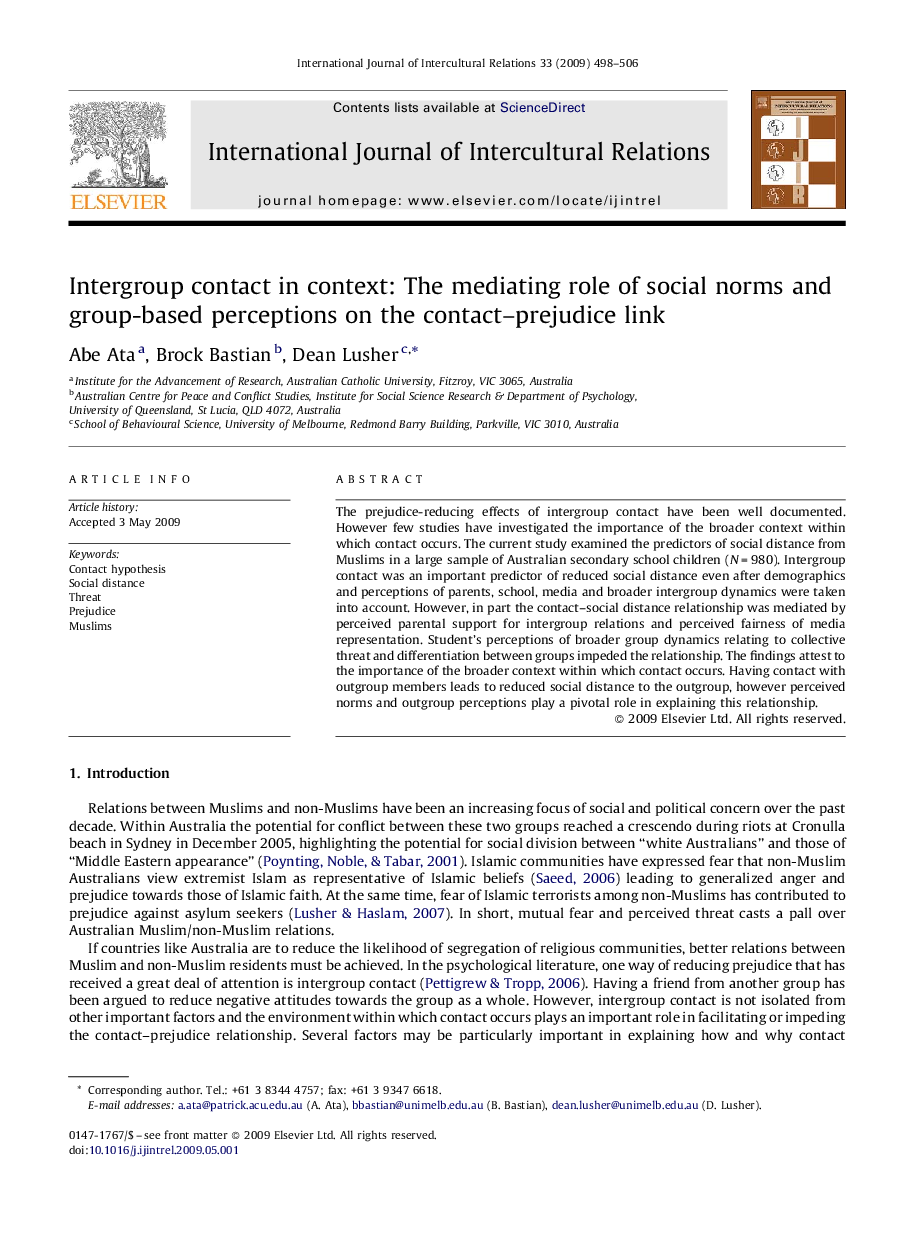| Article ID | Journal | Published Year | Pages | File Type |
|---|---|---|---|---|
| 947401 | International Journal of Intercultural Relations | 2009 | 9 Pages |
The prejudice-reducing effects of intergroup contact have been well documented. However few studies have investigated the importance of the broader context within which contact occurs. The current study examined the predictors of social distance from Muslims in a large sample of Australian secondary school children (N = 980). Intergroup contact was an important predictor of reduced social distance even after demographics and perceptions of parents, school, media and broader intergroup dynamics were taken into account. However, in part the contact–social distance relationship was mediated by perceived parental support for intergroup relations and perceived fairness of media representation. Student's perceptions of broader group dynamics relating to collective threat and differentiation between groups impeded the relationship. The findings attest to the importance of the broader context within which contact occurs. Having contact with outgroup members leads to reduced social distance to the outgroup, however perceived norms and outgroup perceptions play a pivotal role in explaining this relationship.
